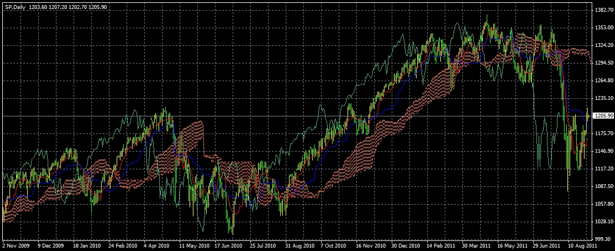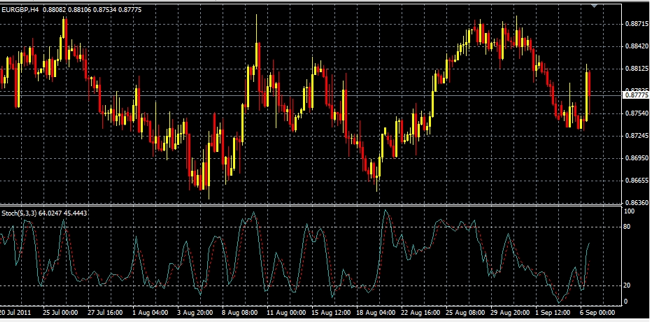Delving into Spread Betting and CFDs The Fundamentals of Spread Betting
Post on: 20 Май, 2015 No Comment

on 12/24/13 at 4:03am
The origin of spread betting dates back to the 1940s. The man who is credited with being the father of spread betting as we know it is Charles McNeil. 34 years later an investment banker from the United Kingdom began offering spread betting on commodities. Essentially what you’re dealing with in the context of spread betting is speculation on asset prices rising/falling. This makes it a derivative trading strategy where ownership of core assets does not exist. Important aspects of spread betting include the inherent tax benefits that traders enjoy, in tandem with the significant leverage that is offered. The basic manner in which a spread betting trade works requires a buying price and a selling price. The concept of a spread refers to the difference between the purchase price and the selling price. This is generally how bricks and mortar trading companies generate profits from these trades.
Spread Betting Garners Attention
There is a substantial difference between stock market trading and spread betting. If for example you purchase 100 shares of Stock A for £100 and the price goes up to £105 when the position is closed, you have generated a profit of £500 off an initial outlay of £10,000. If we are to assume that there is no margin being used, the trader requires a substantial amount of capital to make this trade. The profit of £500 is also subject to taxation. There are all manner of other fees that need to be considered in this regard, including that of commission, broker fees, stamp duty and the like.
If on the other hand a trader opts for a spread bet on the same stock, that trader is essentially reliant on a series of points for the price movement. Said differently, each point of movement can be equated with a monetary value in the black or in the red. In the event that the trader decides to buy Stock A and the stock increases in value from £100 to £105, the trader can generate the same profit as the stock market trader, sans the initial outlay, the commissions, the capital gains tax and the stamp duty. Spread betting is not entirely as uncomplicated as the above example suggests, since there are many variables to consider. Chief among them is the tightness of the spread (which has the effect of reducing the entry cost).
The Mechanics of Spread Betting
One of the most notable aspects of spread betting for new traders relates to its accessibility. As mentioned above, stock markets require substantial capital outlays while spread betting trades do not. Typically a spread bettor is required to only have a certain percentage of the overall value available to make the trade. Traders can therefore generate significant market exposure for very little money up front. What determines how much exposure a particular trader has is his/her margin which is then multiplied by the leverage to understand how much trading power that individual has. Many novice traders are blithely unaware of the duality of leverage. It’s great when it’s working for you but it can destroy your bankroll when the market turns against you. Since a specific minimum is required of traders upfront, incremental amounts will be required from traders when the points are moving against you in a trade.

Contracts for Difference (CFDs)
CFDs are leveraged products. In other words traders are only required to deposit a percentage of the overall value of the trade to enjoy the benefits of CFDs. Traders do not take physical possession of any of the traded assets – they are simply trading contracts. You essentially take a position on the expected value of a particular asset, by deciding if you feel the price of that asset will move upwards or downwards at some future point. In much the same fashion as spread betting was explained above, the use of leverage can go either way. Prices will be set for a specific market where traders have the option to buy or sell. These prices allow the trader to speculate on the future price movements of a specific asset. When you buy you’re essentially going long and when you sell you are shorting the market. Note that CFDs are available across multiple instruments including foreign exchange, indices, commodities and shares. There is a difference between spread betting and CFD trading. CFD trading is recommended as a hedging mechanism owing to its tax-deductible nature. It also works well for traders seeking a professional trading account or a corporate trading account. Traders who have an innate understanding of a specific market – the underlying market that is being traded – tend towards CFDs.
Analysts have noted that many traders maintain a stock portfolio and safeguard that portfolio (hedge against it) by using spread betting and CFD trading. For example you may be uncertain about the direction of movement of your stocks, so it is possible to use CFDs to go short on stocks that you’re uncertain of. While there is significant potential for loss with CFDs and spread betting, there are measures in place that allow traders to safeguard their investments. These include stop losses. If you wish to protect your investment – and every investor does – then stop losses are imperative. With spread betting, much the same is being done with the exception that you’re not setting a specific stop loss at a price, rather you are betting in £/$/€ for each point of movement. The intricacies of the actual trading mechanisms require a deeper understanding of price movements, the spread that is charged by the provider and taxation related issues. Note that with spread betting there is no taxation however losses on spread bets cannot be traded off against tax liabilities in the future. With CFDs, losses can be written off. Traders are advised to seek professional assistance before engaging in spread betting and CFDs. There is tremendous potential for traders once they have a solid understanding of the underlying market fundamentals.
About the author: Brett Chatz is a graduate of the University of South Africa, and holds a Bachelor of Commerce degree, with Economics and Strategic management as his major subjects. Brett provides in-depth analysis and consultancy to the critically acclaimed spread betting and CFD trading provider, InterTrader.














